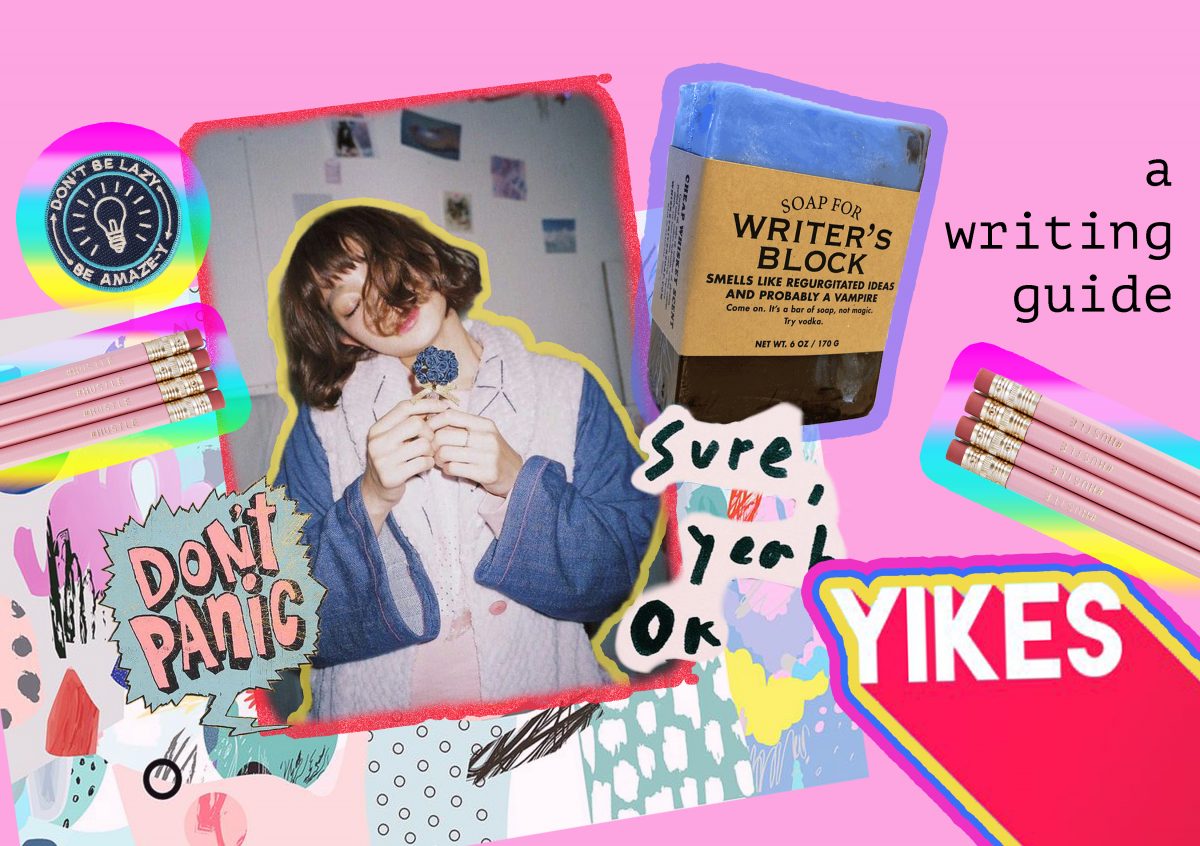A Writing Major’s Guide to Overcoming Writer’s Block
A Writing Major’s Guide to Overcoming Writer’s Block
By Elly Blatz
So, you’re bad at writing.
Don’t worry, we’ve all been there. And as a writing major, I can tell you that I have 100%, completely, absolutely been there (at least once a day). Whether it’s a story for class, an essay, a response, whatever, we constantly fret over our words, wanting them to sound as nice as the classics. It’s an insecurity we all have. We’ll pour countless hours into editing, only to get no sleep while wondering all night if it’s okay.
Ugh, don’t even get me started on Writer’s Block.
As I’ve been dredging through my daily writing classes, I often feel like I’m in a rut. Although I’ve been feeling like I have no more creativity left in me, my professor offered a couple helpful tips as all of us started to dwindle on him.
- First drafts always suck. Don’t ever turn in a first draft. Read it over yourself, outloud, or have another person look over it. It’ll open your eyes to improvement.
- You don’t have to be a thesaurus. Stop googling fancy words to say simple things. If you don’t know the word, don’t say the word. Half the time, you’ll use it wrong and end up looking more stupid.
- Your ideas are always better than you think they are. This is especially important with story writing. Whatever character, idea, plot, etc. that you think is cheesy or dumb and want to destroy might be what the audience loves the best.
- Make an outline. Don’t get too wrapped up in the pretty stuff. Make sure the foundation is concrete and has no cracks.
- Write down any idea. Don’t throw away ideas because they’re not fleshed out or “dumb”. Just because one character doesn’t work with your first story, doesn’t mean they won’t work with your tenth story. Your ideas are important. Cherish them. They are 100% yours.
- Read. Other’s work will inspire you. My one professor asks us every day, “where are we getting our fiction from today?” because we need to be provoked as creators (and yes, you are a content creator no matter what, even if you’re just writing an essay).
Okay, remember how I said “Don’t get me started on Writer’s Block”? Well, now let me get started on Writer’s Block.
Now, this all isn’t foolproof, but here are 10 ways that I combat or help Writer’s Block.
- Take a break. Honest to god, this helps so much. If you’re stuck, go talk to some friends, step outside, watch a YouTube video or something. Change it up and your brain might just kick back into hard drive.
- Bounce your ideas off of someone. I’m pretty sure my roommates are so sick and tired of me coming into their rooms and rambling on about an idea I’m stuck on, but they always help. Sometimes it’s a new idea they’ve sprung about. Sometimes, it’s just about talking it out or saying it outloud, which leads us to…
- Read it outloud. Especially when editing, you can often figure out what is stumping you when you read it out loud. Read it to yourself or another person. If the writing isn’t flowing, your paper isn’t either.
- Record your ideas. Sometimes, saying it outloud and recording your thoughts is the best way to flesh out an idea. Rant. Ramble. Let your mind go and then cringe at your own voice and ideas as you jot them down during playback.
- Make it less boring. Sometimes, if I want to get into the “mood”, I’ll play certain music or even just change the font I’m writing with (between you and me, I’m currently writing this in an old-timey typewriter font so I feel more smart and official. Pretentious, I know).
- Set the mood. Make sure you’re not in a distracting place. Even if you’re like me and cannot do any work to save your life without someone next to me (your S.O. is perfect for this job), make sure that they’re not distracting you. If you’re in a loud room, or perhaps your roommate is playing a show that–even though it sucks–you know you’ll get wrapped into, move rooms. It sucks, but sometimes, it gets the job done.
- Schedule. Don’t wait until last minute please. Unless you’re me. Then I get the pass.
- Prompt yourself. Start an idea log or journal. This is the best thing if you’re a story writer. Start up a journal. Fill it with little ideas, prompts, character ideas. A little idea one day could make your entire story a month later. Also, prompt compilations (such as books or blogs) are a godsend.
- Make sure you are rested and (well) fed. Sorry, gotta be that guy.
- Take a deep breath. Relax. It’s all going to be okay. This one story or essay is not going to make or break the rest of your life. Remember that you are your harshest critic.
Hope this helps all of you as much as it’s been helping me! Feel free to comment/share your own help and advice when it comes to writing.
Until later,
L.E. x









